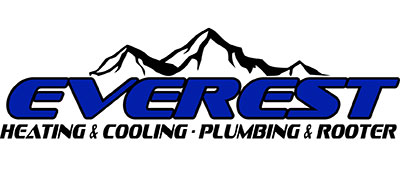
We spend a lot of time inside. As a matter of fact, the Environmental Protection Agency (EPA) has estimated being inside makes up 90% of our schedule. Having said that, the EPA also has found your indoor air can be three to five times dirtier than outdoors.
That’s due to the fact our homes are tightly sealed to enhance energy efficiency. While this is great for your energy expenses, it’s not so great if you’re amid the 40% of the population with respiratory allergies.
When outdoors ventilation is insufficient, pollutants such as dust and volatile organic compounds (VOCs) may get captured. Consequently, these pollutants might aggravate your allergies.
You can enhance your indoor air quality with clean air and usual dusting and vacuuming. But if you’re still struggling with symptoms during the time you’re at your house, an air purifier might be able to provide assistance.
While it can’t remove pollutants that have landed on your furnishings or carpeting, it could help purify the air traveling throughout your house.
And air purification has also been scientifically confirmed to help lower some allergic symptoms, according to the American College of Allergy, Asthma and Immunology. It might also be appropriate if you or someone in your household has lung issues, including emphysema or COPD.
There are two options, a portable air purifier or a whole-home air purifier. We’ll examine the differences so you can figure out what’s right for your residence.
Whole-House Air Purifier vs. Portable Air Purifiers
A portable air purifier is for a single room. A whole-house air purifier works alongside your heating and cooling equipment to purify your complete home. Some models can work independent when your heating and cooling system isn’t running.
What’s the Best Air Purifier for Allergies?
Look for an option with a High Efficiency Particulate Air (HEPA) filter. HEPA filters are placed in hospitals and deliver the greatest filtration you can buy, as they catch 99.97% of particles in the air.
HEPA filters are even more useful when used with an ultraviolet (UV) germicidal light. This dynamic mixture can eliminate dust, dander, pollen and mold, all of which are common allergens. For the best in air purification, evaluate a unit that also has a carbon-based filter to reduce household smells.
Avoid getting an air purifier that generates ozone, which is the top component in smog. The EPA advises ozone might worsen respiratory problems, even when emitted at minor amounts.
The Allergy and Asthma Foundation of America has created a checklist of questions to think over when buying an air purifier.
- What can this purifier take out from the air? What doesn’t it remove?
- What’s its clean air delivery rate? (A bigger amount means air will be freshened more rapidly.)
- How frequently does the filter or UV bulb need to be replaced]? Can I do that by myself?
- How much do replacement filters or bulbs cost?
How to Lessen Seasonal Allergy Symptoms
Want to receive the {top|most excellent|best] results from your new air purification unit? The Mayo Clinic advises taking other steps to limit your exposure to seasonal allergy triggers.
- Stay in your home and keep windows and doors sealed when pollen counts are heightened.
- Have other family members mow the lawn or pull weeds, since these tasks can irritate symptoms. If you have to do these chores alone, you might want to consider trying a pollen mask. You should also rinse off right away and put on new clothes once you’re completed.
- Avoid drying laundry outside your home.
- Run your air conditioner while at home or while driving. Consider adding a high efficiency air filter in your house’s heating and cooling equipment.
- Even out your home’s humidity percentage with a whole-house dehumidifier.
- Hardwood, tile or linoleum are the suggested flooring materials for reducing indoor allergens. If your house has carpet, use a HEPA filter on your vacuum cleaner.
Let Our Pros Take Care of Your Indoor Air Quality Requirements
Prepared to take the next step with installing a whole-house air purifier? Give our specialists a call at 913-845-9463 or contact us online to get an appointment. We’ll help you locate the ideal unit for your family and budget.




